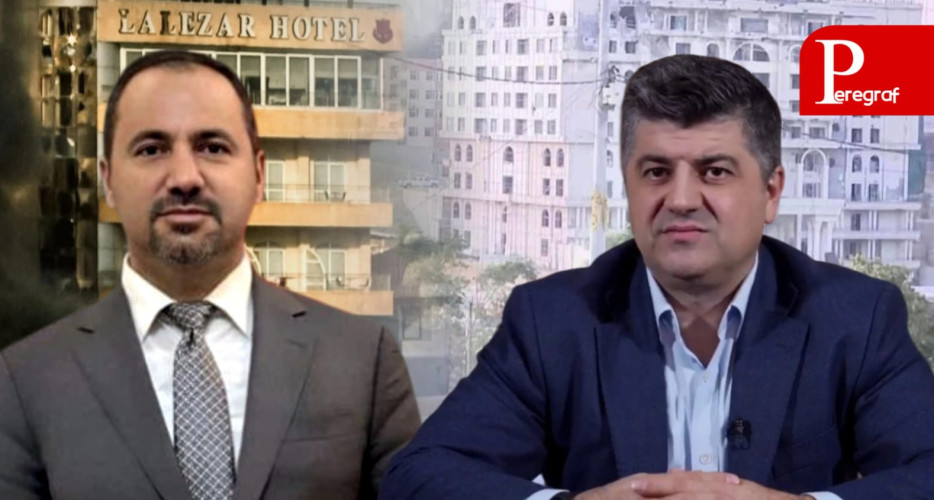Sulaymaniyah Asayish Publishes Arrest Warrants and Charges as Lalazar Case Details Emerge

Peregraf
The Kurdistan Regional Security Agency (Sulaymaniyah Asayish controlled by PUK) on Wednesday published arrest warrants for Lahur Sheikh Jangi, leader of the People’s Front, and Azhi Amin, head of the Kurdistan Regional Security Council in Erbil and former director of the Zanyari Agency in Sulaymaniyah, along with several other members of the Council.
The warrants list serious charges, including "attempts to create chaos in Sulaymaniyah and attempts to assassinate Bafel Talabani, the leader of the Patriotic Union of Kurdistan (PUK)."
Sulaymaniyah Asayish announced that two suspects had been arrested for monitoring the movements of Talabani in connection with the alleged assassination attempt.
According to the agency, the suspects were equipped with sniper rifles and suicide drones as part of the operation, which was "supervised by Lahur Sheikh Jangi."
The agency further accused both Jangi and Azhi Amin of planning to create instability in Sulaymaniyah and the province as a whole. "The purpose of this plan was to create chaos through violence and targeting political, security, and civil servants," Asayish said in its statement.
Charges Against Azhi Amin
According to the Asayish, two separate arrest warrants were issued for Azhi Amin on August 23 — one day after the violent Lalazar clashes. The first was under Article 406 of the Iraqi Penal Code, which covers deliberate killing, and the second under Article 56, which relates to conspiracies against state security.
He is accused of direct involvement in the Lalazar battle, including killing civilians, causing chaos, and attempting acts of terrorism.
Jangi Speaks from Detention
Meanwhile, in his first public remarks since being detained, Lahur Sheikh Jangi addressed allegations of torture and forced confessions while in custody.
He made the comments during a visit on Tuesday by a high-level delegation from the Independent Human Rights Commission in the Kurdistan Region (IHRCR), which met with him and other detainees at Kani Goma prison in Sulaymaniyah.
Jangi told the delegation that he was in "good health," being held in a private room, and had been allowed to video call his family. He added that he had been provided with books he requested.
Rejecting reports of recent abuse, he said: "Since my transfer to the Asayish prison in Kani Goma, I have not been subjected to violence or torture, nor forced to confess. No cameras or recording devices were used during interrogations."
He urged the Human Rights Commission to closely monitor his case and ensure it proceeds through proper legal channels. Jangi also said he had previously warned U.S., British, French, and Kurdistan Regional Government (KRG) representatives of the risk of clashes.
The IHRCR delegation, led on the directive of Commission President Dr. Muna Yaqo, confirmed Jangi’s right to meet with lawyers and said the issue of legal access would be resolved soon.
Other Detainees’ Conditions
The Commission also met with several detainees described as Jangi’s supporters. According to investigators, 162 individuals remain in custody. Security forces told the delegation that five people were killed in the Lalazar clashes — three security members and two fighters from Jangi’s group.
Families of some detainees have been allowed daily visits, while the Commission urged relatives of missing persons to contact its Sulaymaniyah office for information.
The Lalazar Incident
The arrests stem from deadly clashes on August 22, when security forces attempted to execute an arrest warrant for Jangi at the Lalazar Hotel, his residence and headquarters.
Forces from the Asayish, Counter-Terrorism Group (CTG), and Commando units surrounded the building, but Jangi’s loyalists — known as the Scorpion Force — resisted. Hours of intense fighting, including gunfire and explosions, left five dead, dozens injured, and over 100 arrested, while nearby residential areas suffered heavy damage.
Jangi, a former PUK co-president who founded the People’s Front after being ousted in 2021, eventually surrendered and was detained along with his brother Polad and senior aides.
The incident has further deepened divisions between the PUK and Kurdistan Democratic Party (KDP), raising fears of wider instability across the Kurdistan Region.